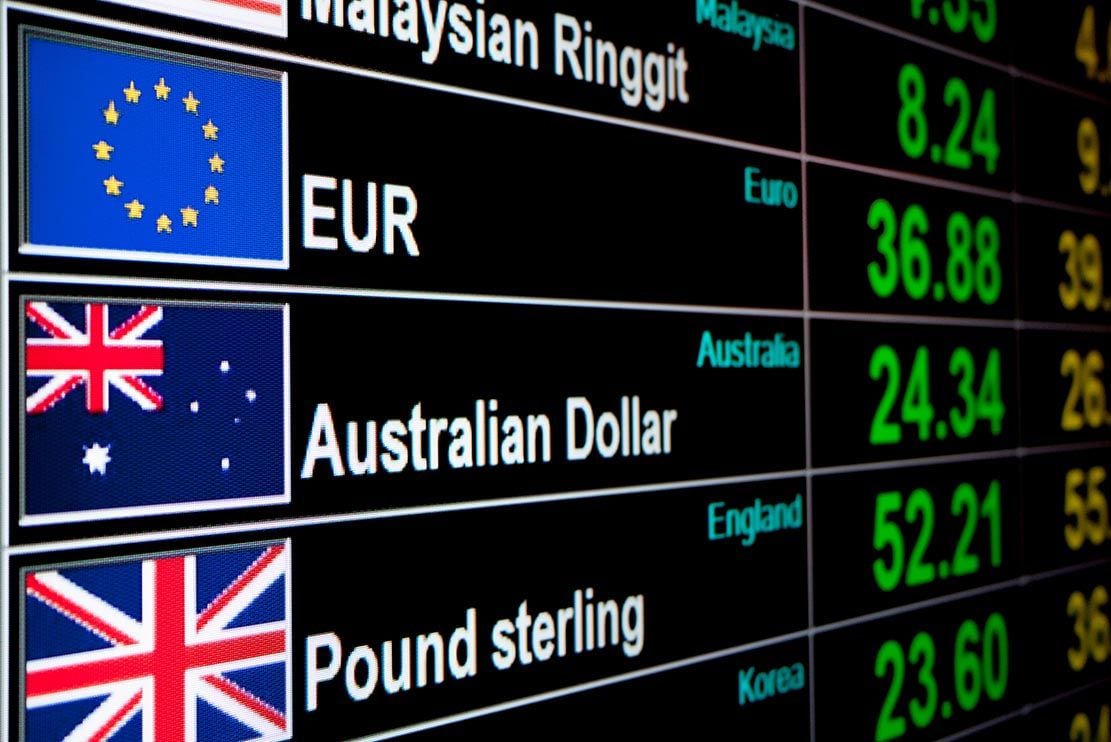Australian Dollar: S&P Downgrade Ratings Outlook
- AUD softer in mid-week trade
- S&P lower ratings outlook, note deterioration in country's finances
- But impact on AUD likely to be limited

Image © Adobe Stock
- GBP/AUD spot rate at time of writing: 2.0058
- Bank transfer rates (indicative): 1.9360-1.9500
- FX specialist transfer rates (indicative): 1.9960-1.9900 >> More information
The Australian Dollar declined against the Pound, Euro, U.S. Dollar and other major currencies on Wednesday, April 08 following a decision by ratings agency Standard & Poors to downgrade the outlook for the country's credit rating.
S&P downgraded the 'outlook' on Australia's AAA sovereign credit rating from 'stable' to ‘negative’. "We have revised our outlook on Australia to negative from stable to reflect a substantial deterioration of its fiscal headroom at the 'AAA' rating level. At the same time, we are affirming our 'AAA/A-1+' long- and short-term local and foreign currency ratings," said S&P in a note concerning the decision.
The Australian government's desire to run a balanced budget in 2020 was thrown out the window in response to the unprecedented impact of the coronavirus outbreak, which meant substantial support packages would need to be made available to businesses and individuals as the global economy ground to a halt and a domestic containment effort put the economy into reverse.
On 30 March, the Government announced the A$130BN JobKeeper Payment to help keep Australians in jobs as we deal with the significant economic impact from the Coronavirus. This brings the Government’s total support for the economy to A$320BN across the forward estimates, representing 16.4% of annual GDP.
"AUD/USD declined in the Asia session towards 0.6130 after credit rating agency, Standard & Poors (S&P), downgraded the ‘outlook’ on Australia's AAA sovereign credit rating from ‘stable’ to ‘negative’ says Kim Mundy, FX Strategist at Commonwealth Bank of Australia. "A negative rating means there is a one in three chance of a rating downgrade in the next two years. AUD/USD may remain heavy in the near‑term because of S&P’s changed guidance and a strengthening in USD."
The Pound-to-Australian Dollar exchange rate is meanwhile quoted at 2.0058 at the time of writing, as the pair looks to reestablish some stability following the recent sell-off linked to the ongoing recovery in global stock markets, which tends to benefit the Aussie Dollar.
The downgrade to Australia's ratings outlook could precede an actual cut to a country's sovereign debt rating, and we could well see such a move occur over coming months owing to the substantial increase in spending committed by the Australian government to fight the coronavirus outbreak.
"We could lower our rating within the next two years if the COVID-19 outbreak causes economic damage that is more severe or prolonged than what we currently expect. With household indebtedness at elevated levels, this could delay the process of repairing the government balance sheet beyond what we expect currently. Government indebtedness and interest costs will remain at elevated levels," said S&P.
However, Australia enters the crisis with a relatively healthy financial position and considering the majority of the world's developed markets are also likely to see their debt piles balloon owing to the crisis, we would not expect the Aussie Dollar to be particularly impacted.
"The outlook could revert to stable if the general government fiscal balance improves in line with our expectations as the economy recovers or if Australia's external position improves. Stronger fiscal and external positions would provide the sovereign with a buffer to absorb another potential economic or financial shock," said S&P.
"Credit ratings are not the major driver of currencies," says Mundy. "In the current environment, commodity prices and USD direction are the major short term drivers of AUD."
We would only expect the credit rating of a nation to start having material impacts on the currency when it is clear that rating is heading into junk territory, as has been the case of South Africa over recent years.




